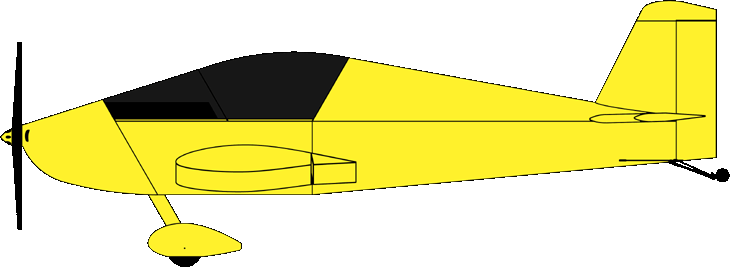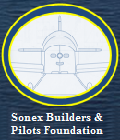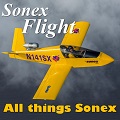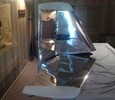

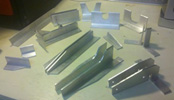
random user submitted photo
Gascolator?
37 posts
• Page 1 of 4 • 1, 2, 3, 4
Gascolator?
I'm building a Sonex Model B with a Rotax 912 engine.
Do folks have a gascolator for this? Do the Aerovee engine folks use a gascolator?
Thanx!
Dkb
Do folks have a gascolator for this? Do the Aerovee engine folks use a gascolator?
Thanx!
Dkb
==============================================================
David Boeshaar
KWHP
TDAIRCRAFT.COM
My Greatest Fear: What if the Hokey Pokey really is what it's all about?
==============================================================
David Boeshaar
KWHP
TDAIRCRAFT.COM
My Greatest Fear: What if the Hokey Pokey really is what it's all about?
==============================================================
- dboeshaar
- Posts: 65
- Joined: Wed Jan 27, 2021 5:21 pm
- Location: KWHP, California
Re: Gascolator?
I got one in my kit, but didn't use it.
Bryan Cotton
Poplar Grove, IL C77
Waiex 191 N191YX
Taildragger, Aerovee, acro ailerons
dual sticks with sport trainer controls
Prebuilt spars and machined angle kit
Year 2 flying and approaching 200 hours December 23
Poplar Grove, IL C77
Waiex 191 N191YX
Taildragger, Aerovee, acro ailerons
dual sticks with sport trainer controls
Prebuilt spars and machined angle kit
Year 2 flying and approaching 200 hours December 23
-

Bryan Cotton - Posts: 5475
- Joined: Mon Jul 01, 2013 9:54 pm
- Location: C77
Re: Gascolator?
In my limited experince.
Gascolator are:
Most European, recreation level, Rotax powered aircraft use in line, lightweight,transparent plastic body, gauze filters eg Hengst H102 WK or H103 WK. Baldwin make a wider range. (beware of copies that may not perform to the reputable brands standards)
Check out Rotax 912 Installation Manual, Chapter 73-00-00, Page 7
Hope this helps.
Gascolator are:
- Relatively heavy & bulky, compared with in line filters
Good at removing water
Compared with many off the shelf in line fuel filters have only a small filter area.
Limited filter screen micron sizes (X 2 ?) Rotax recomend a fine filter between 70 - 100 micron
Use a compression sealing system that logically should be prone to leaking but somehow does not
Can be used in the engine compartment, courtesy of their all metal construction
Are expensive - however are likly to last the life of the aircraft (flat rubber seal may require replacing from time to time)
Must be opened to inspect for contamination build up
Messy to service
Best located low down in the fuel supply system.
Probably required in Certified aircraft
Most European, recreation level, Rotax powered aircraft use in line, lightweight,transparent plastic body, gauze filters eg Hengst H102 WK or H103 WK. Baldwin make a wider range. (beware of copies that may not perform to the reputable brands standards)
Check out Rotax 912 Installation Manual, Chapter 73-00-00, Page 7
Hope this helps.
- Skippydiesel
- Posts: 797
- Joined: Tue Jul 06, 2021 6:24 am
Re: Gascolator?
Just for those interested:
Most european utralight- and sports aircraft are designed and manufactured either according to british CAA CAR 322 in where one finds the fairly comprehensive BCAR-S, or slight adaptions of this (depends a little of the regulations in the country of manufacture, as well as the country of final registration)
Fairly universal is the directive that under no circumstance you never ever use anything in the fuel system that could deform/melt/leak/cease function when subjected to any form of heat. This includes filters with a housing made of plastic and/or glass and most certainly those listed above.
Further on, no components in the fuel system are permitted that could drip on or spray crew, electrical and/or engine components should an unforseen leak occur.
Carburetted engines must have a gascolator installed in the lowest point in the fuel system with specs to suit the engine manufacturer. Such gascolators are vital components, and their importance have increased now that bioethanol mogas is used more frequently. They are rather pricey: try to save on something else!
Most european utralight- and sports aircraft are designed and manufactured either according to british CAA CAR 322 in where one finds the fairly comprehensive BCAR-S, or slight adaptions of this (depends a little of the regulations in the country of manufacture, as well as the country of final registration)
Fairly universal is the directive that under no circumstance you never ever use anything in the fuel system that could deform/melt/leak/cease function when subjected to any form of heat. This includes filters with a housing made of plastic and/or glass and most certainly those listed above.
Further on, no components in the fuel system are permitted that could drip on or spray crew, electrical and/or engine components should an unforseen leak occur.
Carburetted engines must have a gascolator installed in the lowest point in the fuel system with specs to suit the engine manufacturer. Such gascolators are vital components, and their importance have increased now that bioethanol mogas is used more frequently. They are rather pricey: try to save on something else!
Sonex A #0525- SG, DS.
EdgePerfomance EP915ECI, 123HP
EdgePerfomance EP915ECI, 123HP
- Kai
- Posts: 305
- Joined: Wed Jul 30, 2014 1:36 am
- Location: ICAO ENHS
Re: Gascolator?
I do not think you are correct Kai.
The instructions you refer to likly relate to engine bay - you don't have to have filters in the engine bay.
I was the agent/importer for a European light aircraft . Non had gascolaters - all used in line Hengst H102WK or H 103 WK filters.
I have noticed that many other European makers use similar filters.
I had an ATEC Zephyr for about 12 years, over 900 hrs of trouble free (never had a leak or even the smell of fuel) using the Hengst filters above.
The instructions you refer to likly relate to engine bay - you don't have to have filters in the engine bay.
I was the agent/importer for a European light aircraft . Non had gascolaters - all used in line Hengst H102WK or H 103 WK filters.
I have noticed that many other European makers use similar filters.
I had an ATEC Zephyr for about 12 years, over 900 hrs of trouble free (never had a leak or even the smell of fuel) using the Hengst filters above.
- Skippydiesel
- Posts: 797
- Joined: Tue Jul 06, 2021 6:24 am
Re: Gascolator?
dboeshaar wrote:I'm building a Sonex Model B with a Rotax 912 engine.
Do folks have a gascolator for this? Do the Aerovee engine folks use a gascolator?
Thanx!
Dkb
I am completing a Sonerai project and using a rotax 912, I will be using a gascolator. I also have a gascolator in my 3300 Jabiru sonex, it's located at the lowest point in the system. The curtis valve on the bottom of the gascolator is where I do the fuel drain/sample.
The non use of a gascolator seems to be a common compromise when using an aerocarb.
Steve
Lazair kit 1981 sold
Sonerai 2LS plansbuilt 2003 sold
Sonex kit 2010
Sonerai 2LS project rotax 912
Lazair kit 1981 sold
Sonerai 2LS plansbuilt 2003 sold
Sonex kit 2010
Sonerai 2LS project rotax 912
-

sonex892. - Posts: 414
- Joined: Tue Oct 27, 2015 12:32 am
Re: Gascolator?
I'm not going to say they are unnecessary, but I had a glass one on my Cessna 150 for 20 years, had it opened every annual inspection, checked it every preflight, and never found anything in it. No dirt, no water. Sumped the tanks also and never found water. Airplane always hangared.
I installed a gascolater on the Onex. In fact, it was the only thing I was gigged for on the inspection. It required safety wire in the bowl mounting screws. But, after a few hours of dealing with it, I went with the Sonex approach and removed it. The lowest point on my fuel system was the Aeroinjector and any water would end up there, where it would be very noticeable. After 10 years with the Onex water was never a problem. Think about it. How does water get in your fuel tank? There is no air flow up your fuel vent. Humidity and condensation are not a problem. Keeping the tank full helps. My Cessna was seldom full, with vented caps and didn't have a problem. Airport fuel systems today are much better when it comes to filters and the above ground systems do not have the water problems the inground systems had. When I was line boy I had to pump the water out of the bottom of the inground tank at least once a week to keep it below the pickup pipe.
I installed a gascolater on the Onex. In fact, it was the only thing I was gigged for on the inspection. It required safety wire in the bowl mounting screws. But, after a few hours of dealing with it, I went with the Sonex approach and removed it. The lowest point on my fuel system was the Aeroinjector and any water would end up there, where it would be very noticeable. After 10 years with the Onex water was never a problem. Think about it. How does water get in your fuel tank? There is no air flow up your fuel vent. Humidity and condensation are not a problem. Keeping the tank full helps. My Cessna was seldom full, with vented caps and didn't have a problem. Airport fuel systems today are much better when it comes to filters and the above ground systems do not have the water problems the inground systems had. When I was line boy I had to pump the water out of the bottom of the inground tank at least once a week to keep it below the pickup pipe.
OneX 107
N2107X
N2107X
- Onex107
- Posts: 504
- Joined: Mon Mar 24, 2014 6:44 pm
- Location: Peoria, IL
Re: Gascolator?
Great subject with debates that may never be totally resolved due to the differences of each application.
In my Sportsman with an IO-360 (SDSEFII) the fuel pressure regulation is done by returning excess fuel to the header tank. When this is done, any water gets tumbled and broken up thus only a small bit of water could ever reach the injectors at a time. The water is then just pushed through the injectors.
On my Revmaster Sonex with a Rotec MKII the water will blow right through the jets and may cause a temporary burp (if there is a lot of it) and could even shut down the engine. Very unlikely, so it's a calculated accepted risk. I use non-ethanol fuel and park in a hangar so water contamination possibility is small.
On a carburated engine with a float bowl, well this is a different situation. Water can slowly accumilate in the float bowl until it becomes a big problem. It's the ability for the water to accumilate and not just blow through the engine a small bit at a time that is the problem.
Using a paper type fuel filter is something to watch out for. These and many others will stop the flow of water and stop the flow of fuel with it. I recommend fine mesh SS filter elements of the micron size recommended by they fuel injector device.
In my Sportsman with an IO-360 (SDSEFII) the fuel pressure regulation is done by returning excess fuel to the header tank. When this is done, any water gets tumbled and broken up thus only a small bit of water could ever reach the injectors at a time. The water is then just pushed through the injectors.
On my Revmaster Sonex with a Rotec MKII the water will blow right through the jets and may cause a temporary burp (if there is a lot of it) and could even shut down the engine. Very unlikely, so it's a calculated accepted risk. I use non-ethanol fuel and park in a hangar so water contamination possibility is small.
On a carburated engine with a float bowl, well this is a different situation. Water can slowly accumilate in the float bowl until it becomes a big problem. It's the ability for the water to accumilate and not just blow through the engine a small bit at a time that is the problem.
Using a paper type fuel filter is something to watch out for. These and many others will stop the flow of water and stop the flow of fuel with it. I recommend fine mesh SS filter elements of the micron size recommended by they fuel injector device.
-Brock
Sonex-A (s/n 1013)
R2300, P-tip 54/50
Center Stick
V16, TT22
Sonex-A (s/n 1013)
R2300, P-tip 54/50
Center Stick
V16, TT22
-

BRS - Posts: 425
- Joined: Thu Aug 20, 2020 4:50 pm
Re: Gascolator?
A few thoughts on the proceeding comments.
Tank breathers
The tank breather allows for the movement of air/gas in out of the tank.
All aircraft fuel tanks have breathers. This is a system for allowing air into the tank, to replace the volume of fuel used (when engine running) and to allow for expansion & contraction of air/fuel gas, caused by diurnal temperature changes and equalise pressures as aircraft climbs & descends.
Condensation forming in fuel tanks.
Water condensation occurs, in the fuel tank, when atmospheric water vapour (gaseous form) in the air changes into liquid water when it comes in contact with a cooler (tank wall) surface.
All fuel tanks have the capacity to develop condensation.
The tendency of a tank to condense water will depend on:
Convention would suggest that the most practical t method of reducing condensation , in fuel tanks, is to keep the tank full ie fill after flight (not before) AND be religious about preflight sample draining of the sump(s).
In short, those that say condensation does not form in their fuel tanks are either very lucky or fooling themselves.
Water In Fuel
Never a good thing.
In sufficient quantity will result in loss of power through to engine failure.
In small quantities - from no discernible effect, through to rough running.
Water can damage the fuel metering system - particularly injected ones.
Those using ethanol blended fuel should be particularly vigilant as ethanol attracts water.
Water separating systems/filters should never be relied upon to deliver water free fuel to the metering system.
Tank breathers
The tank breather allows for the movement of air/gas in out of the tank.
All aircraft fuel tanks have breathers. This is a system for allowing air into the tank, to replace the volume of fuel used (when engine running) and to allow for expansion & contraction of air/fuel gas, caused by diurnal temperature changes and equalise pressures as aircraft climbs & descends.
Condensation forming in fuel tanks.
Water condensation occurs, in the fuel tank, when atmospheric water vapour (gaseous form) in the air changes into liquid water when it comes in contact with a cooler (tank wall) surface.
All fuel tanks have the capacity to develop condensation.
The tendency of a tank to condense water will depend on:
- Construction material - metal having a greater tendency compared with plastics.
Geographic location - some parts of the word have (seasonal) atmospheres containing higher percentage of water vapour.
Diurnal range - locations that have hot days & cool nights (combined with high humidity) are more likly to see condensation develop.
How full is the tank - a full tank (above 75% of capacity) is much less likly to see condensation develop than an empty one. This is simply due to the amount of atmospheric air in the tank.
Shelter - kept in a hanger/outside. A hanger may mitigate daily temperature changes thereby reducing the chances of condensation. ( I have seen lots of hangers that "rain" in the morning). A warm hanger, due to heating or thermal mass, may also reduce the chance of condensation forming.
Convention would suggest that the most practical t method of reducing condensation , in fuel tanks, is to keep the tank full ie fill after flight (not before) AND be religious about preflight sample draining of the sump(s).
In short, those that say condensation does not form in their fuel tanks are either very lucky or fooling themselves.
Water In Fuel
Never a good thing.
In sufficient quantity will result in loss of power through to engine failure.
In small quantities - from no discernible effect, through to rough running.
Water can damage the fuel metering system - particularly injected ones.
Those using ethanol blended fuel should be particularly vigilant as ethanol attracts water.
Water separating systems/filters should never be relied upon to deliver water free fuel to the metering system.
- Skippydiesel
- Posts: 797
- Joined: Tue Jul 06, 2021 6:24 am
Re: Gascolator?
Skippydiesel wrote:...
Water separating systems/filters should never be relied upon to deliver water free fuel to the metering system.
In other words, Sump your tanks. How many, if any, have installed drain valves in the bottom of their Sonex tank? I've always wanted to do this but have never thought it a good idea to have that possible source of fuel leakage in the cockpit.
A real condundrum.
-Brock
Sonex-A (s/n 1013)
R2300, P-tip 54/50
Center Stick
V16, TT22
Sonex-A (s/n 1013)
R2300, P-tip 54/50
Center Stick
V16, TT22
-

BRS - Posts: 425
- Joined: Thu Aug 20, 2020 4:50 pm
37 posts
• Page 1 of 4 • 1, 2, 3, 4
Who is online
Users browsing this forum: Google [Bot] and 8 guests
